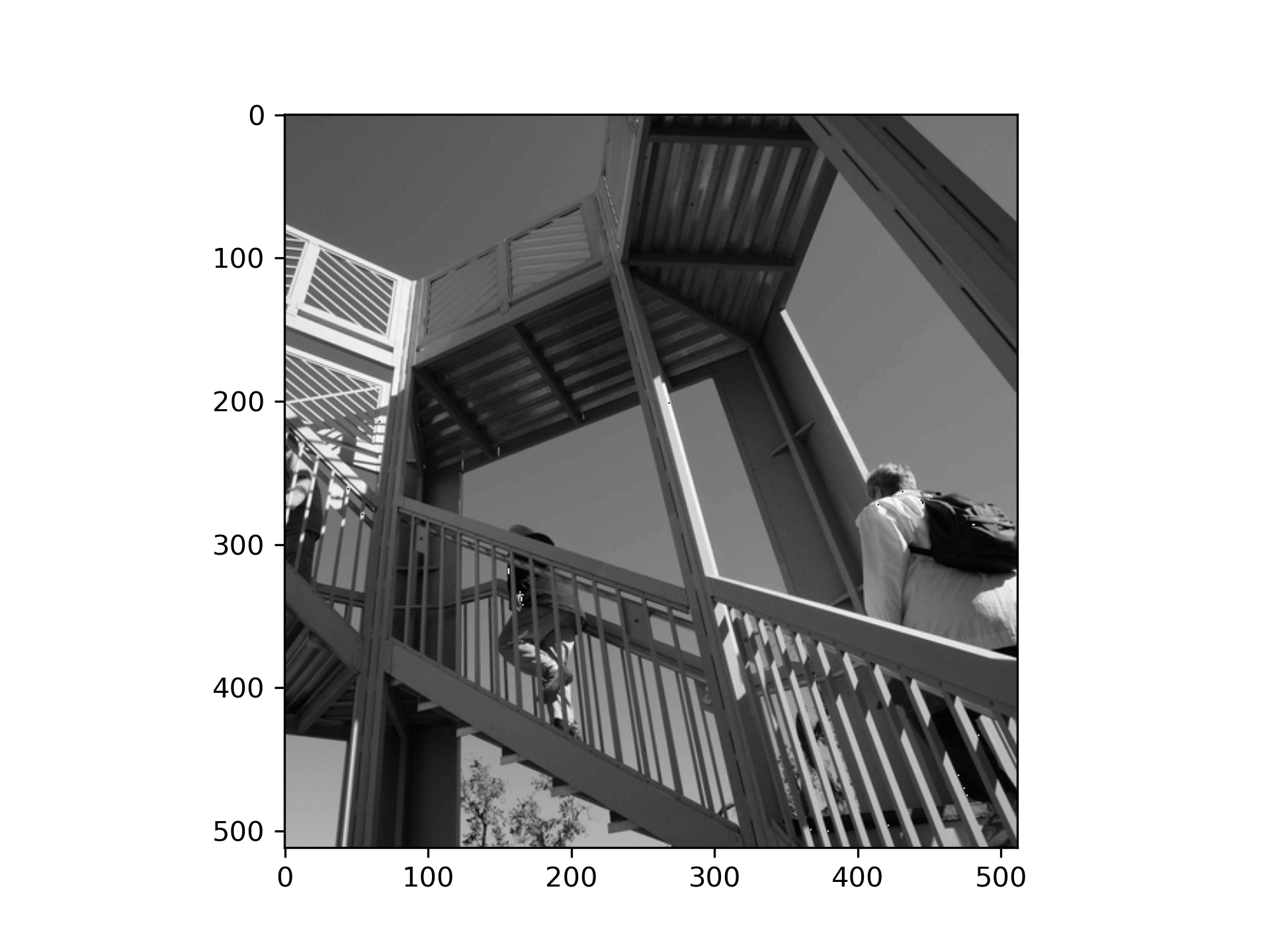ascent()
The image is derived from accent-to-the-top.jpg at http://www.public-domain-image.com/people-public-domain-images-pictures/
convenient image to use for testing and demonstration
Get an 8-bit grayscale bit-depth, 512 x 512 derived image for easy use in demos
>>> import scipy.misc
... ascent = scipy.misc.ascent()
... ascent.shape (512, 512)
>>> ascent.max() 255
>>> import matplotlib.pyplot as plt
... plt.gray()
... plt.imshow(ascent)
... plt.show()

The following pages refer to to this document either explicitly or contain code examples using this.
scipy.signal._signaltools.convolve2d
scipy.misc._common.ascent
Hover to see nodes names; edges to Self not shown, Caped at 50 nodes.
Using a canvas is more power efficient and can get hundred of nodes ; but does not allow hyperlinks; , arrows or text (beyond on hover)
SVG is more flexible but power hungry; and does not scale well to 50 + nodes.
All aboves nodes referred to, (or are referred from) current nodes; Edges from Self to other have been omitted (or all nodes would be connected to the central node "self" which is not useful). Nodes are colored by the library they belong to, and scaled with the number of references pointing them